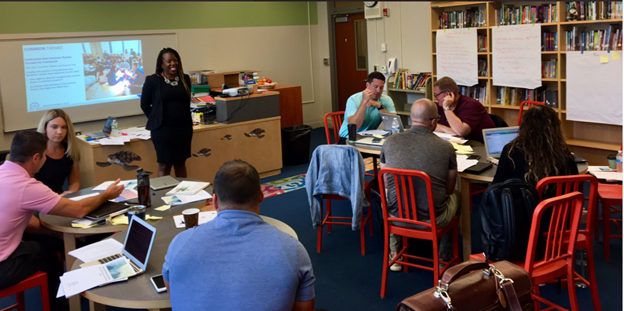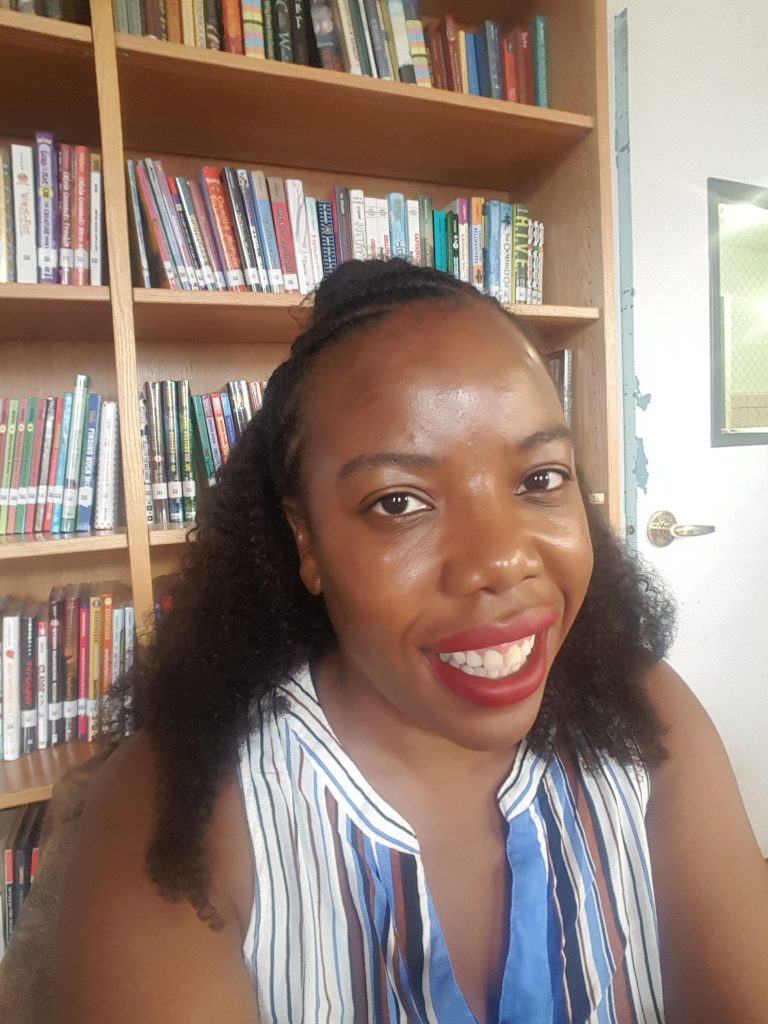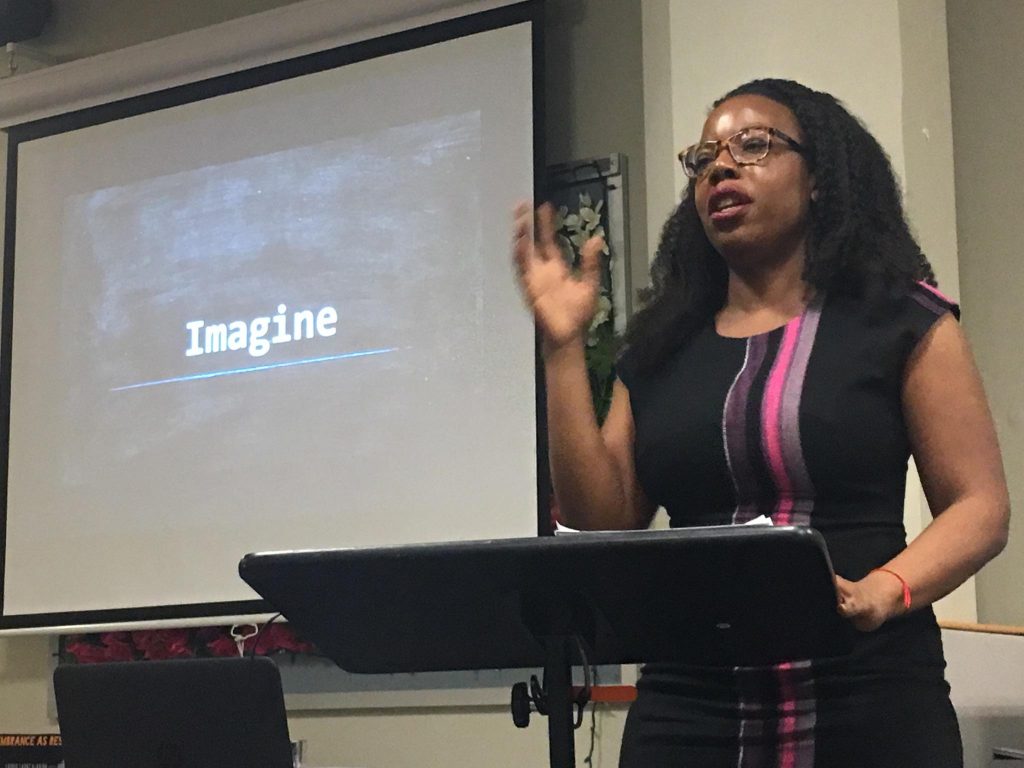Maria Tope Akinyele Ph.D. serves as the Assistant Director of Strategy and Innovation at the Danielson Group. She is also the founder Agiri Learning Consultants, a firm that has helped hundreds of school leaders and organizations embrace, strategize, and enact positive changes in their pursuits towards cultural responsiveness, racial equity, justice, diversity, and inclusion. Dr. Akinyele is a Professional Learning Strategist, Education Designer and Organizational Development Specialist. She draws upon her expertise in emotional intelligence, adult development, cultural responsiveness, justice, equity, diversity, and inclusion (JEDI) to design professional learning experiences that enhance the capacity of leaders and their communities to deepen connections across cultures and maximize their impact. As a thought leader, she develops tools and frameworks that supports leaders in creating culturally responsive, racially literate, and equitable schools and organizations. As a professor at Teacher’s College Summer Principals Academy, she helps aspiring school leaders envision and implement equitable learning practices that empower youth and teachers with cultural competence and critical thinking tools. She collaborates with leaders and organizations to not only imagine but create thriving learning communities where people are genuinely developing and moving towards the actualization of their organization’s mission, vision, and goals.

Dr. Akinyele holds a bachelor’s degree in History and Women Studies with a concentration in African American Studies from Williams College; a Ph.D. in Urban Education from the CUNY Graduate Center; a certificate in Organizational Development and Change Leadership from Georgetown University. She is a certified Emotional Intelligence Assessor for 6seconds.org.
Do you have an impressive background in education please briefly describe it?
Thank you. At an early age, I learned that if there was a problem, then there was a high probability that someone else had researched it and/or solved that problem. I used education and books as a tool for finding solutions to problems. My desire to learn for the sake of finding solutions made me have an affinity for history. History is the story of how people have dealt with problems and the solutions that were created. There is so much richness in studying history to learn how to live better in the present. In college, I majored in history and Women Studies with a concentration in African-American studies. I learned that people on the margins of society had unique perspectives and ideas about making society better for all people. After college, I became a history teacher. It was a marvelous experience. I learned that when I appreciated the culture and perspectives of students, they were more inclined to learn. I entered a PhD program in urban education to learn about the unique conditions of children and educators who lived in the city.
Like rural, suburban, and urban schools, each environment has a unique context that educators need to fully understand, embrace, and transform. My scholarly work involved researching the extraordinary work of teachers in urban schools who tried to do right by children. I wanted to find out about their successes and challenges to provide solutions for other teachers who worked with children in the city. During my Ph.D. program, I realized that understanding the science behind how humans change their practice would help strengthen my coaching work and research in schools. I pursued a certificate in organizational change and leadership at Georgetown University. All my educational pursuits have been in service of identifying and advocating for the best conditions for children to learn and how to support educators in their desire to do good work.
What exactly do you do to help students of different cultures learn better and teachers to teach them?
The beauty of the United States is that our country is filled with people from different backgrounds and cultures. I find that we take the time as people and educators to understand the beauty and context of those differences, we are better able to connect with each other. Unfortunately, many schools haven’t mastered how to teach by celebrating and acknowledging identity differences in the classroom. My work involves helping educators understand their history, context, and cultures and the children they teach. For example, when we go to the doctor, a good doctor will inquire about your medical history to better prescribe medicine that will help. I help educators do the same thing. I encourage teachers to spend time getting to know the unique strengths and needs that every child brings into the classroom. When we understand and appreciate the difference in history, context, and culture of our students were are better able to provide learning experiences that engage them.

Recently you made a statement that was totally taken out of context by some Hollywood influencer how did that make you feel?
It was one of the most difficult experiences of my life primarily because the image portrayed about me implied that I thought less about the intellectual capabilities of black children. This is simply not true. My life’s work has been about uplifting the brilliance of black children and all children. Even though the interview was centered around sharing my experiences in teaching black children. I believe in acknowledging the research-based differences in cultures as a pathway for educators to bridge connection and love with their students.
I was hurt by nasty comments that people wrote about me regarding a 1-minute clip taken out of context. I was also shocked that some people took this as an opportunity to make fun of my ethnicity and background. There were xenophobic images and comments created about me that were so painful. My life’s work has been teaching and leading with compassion, love, understanding, and empathy for people. This experience was the opposite of the values that I teach and advocate. I truly didn’t understand the influencer’s message about me because, in the larger interview from which the clip was taken, I talked at length about the brilliance of black children and solutions to help teachers educate in their communities better.
I shared concrete examples and solutions that have been researched and have worked to increase student engagement and performance in schools. My work with schools has been successful precisely because I take time to understand the context of different schools and their educators. The clip reaffirmed my belief that when we don’t take the time to understand the context of a situation or people, misinformation happens. I encourage anyone to watch the larger interview who wants to better understand the full depth, breadth, and purpose driven message of my work in education.
As things like this happen so much now in a society is there any advice you can give to help other people deal with people who enjoy misconstruing other people’s words?
Although the situation was painful and frightening, it allowed me to reevaluate my values and ground me in my purpose. I had to honestly sit with myself and reaffirm my commitment to helping educators understand the context, strengths, gifts, and needs that every child brings. My advice, therefore, is to spend time with yourself and determine what you really stand for and believe. My career has shown overwhelming evidence that my method of understanding context and history has helped so many people, schools, and children. In a weird way, the situation brought me clarity of purpose. I also advise anyone at the brunt of an internet attack to spend time with people who genuinely know and value you. My support network reflected back at me the integrity of my character and showed overwhelming kindness and support. I’m the type of person who humbly and quietly works behind the scenes. So, it was nice to have people tell me about the invaluable ways that my work and support had positively impacted them. Lastly, this is practical advice: If you are experiencing internet bullying and abuse: Do Not read the hurtful comments and attacks that people write online. They are just trying to judge and make sense of you based on a snippet about who you are as a person. You are more than what they say.
What do you like best about your job?
I love that I get to teach and learn every single day! Good educators are learners at heart; they learn about their students to truly teach them. I love that I learn about my clients and help them create better learning conditions for educators and children. I love that I get to use my strength to help people identify their unique strengths and gifts to the world. I also love that I still get to research to find the best solutions for each school’s unique challenges.
What are some of your greatest challenges professionally?
Right now, the greatest challenge has been educating in this political climate. There has been a backlash against ideas such as culturally responsive teaching because it has been misinterpreted. Everyone has a culture. Culture is the ideas, values, and actions that we consider normal. When we examine our culture and the culture of others, we are better able to appreciate differences and similarities and bridge connections. When we understand culture, we are less likely to judge others harshly. It is unfortunate that culturally responsive pedagogy has been misconstrued because it is an effective approach to teaching and learning supported by concrete evidence. Not only does it work, but it also promotes connection and love for all peoples and their cultures.

What are some of your greatest triumphs professionally?
Although I’ve successfully helped many schools transform into better places to learn for educators and adults, my greatest accomplishment was working in a small high school with the English department in the Bronx. Before my coaching, many students were disengaged and failing. I coached teachers to watch and listen to their students to discover what they cared about and use this information to design fun and engaging learning experiences.
In this school, many students lived with challenges that seemed so impossible to overcome and emotionally difficult. As a result of life experience, students had developed wisdom beyond their years. I wanted educators to tap into that wisdom. I coached the English teachers on using the context of students’ lives to engage them with school. So, I pitched to the English team: Let’s have students write and publish their own memoirs about their life’s hopes, dreams, and challenges. We worked with students to study the ideas, craft, and writing structures of other memoirs and encouraged students to test out different techniques in their own writing. We self-published a book of student memoirs and invited their parents/caregivers to a reading show. The students had become authors showcasing their work. The sense of pride and accomplishment showed by students, teachers, and their families was life-affirming. This is the kind of work I love to do: to help students see their strengths, love themselves, and become better learners.
The official website for Agiri Learning Consultants may be found at https://www.agirilearn.com
Follow Maria Tope Akinyele Ph.D. on Social media:
Instagram: Drakinyele
Linkedin: Maria Akinyele Ph.D.
